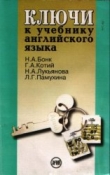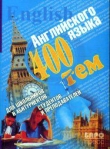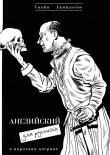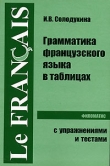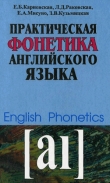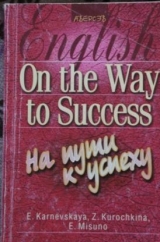
Текст книги "On the Way to Success. На пути к успеху"
Автор книги: Елена Карневская
Жанр:
Иностранные языки
сообщить о нарушении
Текущая страница: 2 (всего у книги 13 страниц) [доступный отрывок для чтения: 5 страниц]
I've recently (lately) spoken to him on the phone. I'm afraid I've forgotten my key. Do you want some more coffee? – No, thanks, I've already had enough.
Has your younger brother left school yet? Slie hasn 't found the dog yet.
To show that something has happened very recently the adverbial just is used.
Mary has just gone out.
Just now, however, which means 'a moment ago' is used with the Past Simple.
Mary went out just now.
There can be no adverbial in the sentence when the present evidence of the result of a completed past action is clear from the context.
My mother is angry because I've lost my watch.
The importance of a completed past action for the present stands out clearly in complex sentences with superlative constructions, ordinal numerals or 'the only'in the principal clause.
It's the best salad I have eaten in this restaurant.
It's the second time I have seen this film.
This is the only place he's been to.
This is the first time I've felt really relaxed.
The Present Perfect for completed past actions is often used with today, this morning, this week, this year, etc. when these periods are not over.
/ have written three letters this morning, (when it is still 'this morning')
It must be remembered that the Present Perfect is not used with 'definite past time' adverbials like yesterday, last time, a year ago, the other day, etc. These adverbials are used with the Past Simple which emphasizes the time of the event. Compare, e.g.:
Deborah has ironed your shirt, (emphasis on the
result)
Deborah ironed your shirt yesterday morning.
(emphasis on the time of the action)
2. Incomplete actions that started in the past, lasted over a period of time and are still taking place in the present. The Present Perfect in this meaning is typical of verbs not used in the continuous aspect but is not limited to them. The starting point of the action is expressed by an adverbial with 'since' while an adverbial with 'for' is used to denote a period of time. (Compare the use of similar adverbials with 'for' with the Past Simple). Such adverbs as ever, never, lately, recently, always, often, all my life, so far, etc. are also often used with the Present Perfect to denote incomplete past actions.
They have been married for 20 years.
I've lived here since 1992.
Have you ever ridden a helicopter?
I have never tasted papaya.
She 's been here several times before.
Compare the use of the Past Simple and the Present Perfect tense-forms.
1. Ann bought herself a new dress yesterday. She paid 30 pounds for it.
2. Have a look. I've just bought a lovely pair of shoes.
3. Marie and Pierre Curie discovered radium and in 1903 won the Nobel Prize.
4. The police haven't found the boy yet. He disappeared 3 days ago.
5. How many times have you been in love? When did you fall in love first?
6. Ron hasn't studied much this term.
7. When did they get married? – Last year. So they have been married for about a year.
8. Chemistry has never been my favourite subject. I liked Maths when I studied at school.
9. Sam hasn't drunk alcohol since he got into a car accident.
10. I bought everything I needed and went straight home.
11. I have bought a new car. – But where's the car you bought last year?
12. That's where I used to live in my childhood.
13. Where is your key? – / don't know. I'm afraid I've lost it. – But when did you see it last?
14. Peter was meeting someone that night so I stayed at the office and worked Jor a few extra hours.
PRACTICE
1. Choose between the Present Perfect and the Past Simple tense-forms.
1. Hello, Mr... er ... Mr – I'm sorry, forgot/have forgotten your name.
2. News just came in/has just come in of an earthquake in Southern Mangrovia. According to the first reports the quake struck/has struck just after midnight last night.
3. Alice bought/has bought a new car. – Really? Where did she get/has she got the money?
4. I have often wondered/often wondered what he does for a living.
5. He was/has been ill before Christmas, but he has been/ was fine since then.
6. Things have been/were difficult since Sharon has lost/ lost her job.
7. Paul was/has been keen on music since childhood.
8. Did you two meet/Have you two met before? David, this is Ann.
9. Did you see/Have you seen Jane by any chance? There's a letter for her.
10. This is the only occasion that I have seen/saw him wearing a tie.
2. Choose the appropriate adverbial of time.
1. I can't remember when/how long I have had this CD player.
2. Have you eaten asparagus before/already!
3. Did you live here in/since 1995?
4. I always got up at six lately/in those days.
5. She fell asleep an hour ago/for an hour.
6. I haven't paid for my ticket still/yet.
7. We've known each other since/for many years.
8. They haven't seen Carol since/for last year.
9. Actually I had dinner with Paul last night/lately.
10. Tire other clay/Lately Nick received a parcel from home.
11. Have you spoken to the manager still/yet?
12. I've seen Margaret quite often lately/from time to time.
13. Ruth bought a portable computer since then/last year.
14. Sorry, but I haven't finished that work already/yet.
15. The price of petrol has risen considerably last time/over the past year.
3. Open the brackets using the Present Perfect or the Past Simple tense-forms.
1. I (shout) at them and they (run) away.
2. What's the best film you ever (see)!
3. Simon is not at home. He (go) to a football match.
4. It was such a wonderful performance that we (applaud) for fifteen minutes.
5. Why do you look so sad? Anything (happen)!
6. Jaime lives in Venezuela; he never (see) snow.
7. I (not/wake) at 7 o'clock yesterday, because my mother (not/be) at home.
8. Anyone (see) my dictionary? I can't find it.
9. A lot of rain (fall) last week.
10. When I (get) home late yesterday evening my dad (be)
very angry.
11. I (know) Helen for 10 years. We (study) at university together. She was one of the best students.
12. Alexander Fleming (invent) penicillin in 1928.
13. The house they (buy) looks much larger than ours.
14. I (order) a taxi to take me to the airport. So we'll be on time.
15. You (cut) your finger! How it (happen)!
16. Peter (not/eat) all the bread and butter, he (leave) some on the plate.
17. He (be) interested in jazz ever since he (leave) school.
18. We (have) a lovely time in Wales. – So you (enjoy) your holiday, didn't you?
19. I (use) to like swimming but I don't now.
20. I never (see) so many beautiful girls as here at the party.
21. My elder brother (have) a car for two years already. He (buy) it in France.
22. Jane (recover) yet? – No, she is still in hospital.
23. My watch (stop). I must take it to the watchmaker's.
24. Shakespeare (be) born in 1564 and (die) in 1616.
25. I'm sorry I can't accept your invitation. We already (make) our plans for the holiday.
26. I (begin) to teach Max to ride a bike last year.
27. We (run) out of sugar. Can you go and get some from the shop?
28. My brother is an actor. He already (appear) in several films.
29. What your father (give) you for your last birthday?
30. You (see) Tom? – Yes, I (to talk) with him an hour ago.
31. Are you the boy whose dog (make) a terrible noise at night? – I'm sorry, but you are mistaken, sir. I never (own) a dog.
32. What (happen) there? – The dog (bite) the boy when he entered the garden.
33. You (know) each other before? – Yes. We first (meet) 3 years ago.
34. He (take) off his pullover, (lie) down on the sofa and (start) to read a magazine.
35. 1 don't keep pets now but I (use) to keep a dog when I
(be) a boy.
36. I (iron) Jim's shirts this morning and in the afternoon I
(do) the shopping.
37. Why are you limping? -1 (twist) my ankle.
38. The plane (take) off from London at 9.00 and (land) in Geneva at 10.30.
39. Joanna (not change); she is the same as ever.
40. When I (.switch) on the dishwasher, the machine (make) a loud noise.
41. People always (want) to be able to fly like birds in the sky.
42. I once (play) a guitar which (have) only five strings.
43. I never (teach) a class where the students are so lazy.
44. I (lose) a button. I don't suppose I'll ever find it.
45. The slower you eat the more you will think you (eat).
46. You (be) already late for classes twice this week, Nick.
47. What a surprise! You're the very person I (want) to see
so much.
48. They say the police already (catch) both of the thieves.
49. When we (be) kids, we (love) the beach very much, so we (use) to spend all our holidays at the sea.
50. You (make up) your minds yet? What you (decide) to do?
51. She (slip) her arm under his and (give) him a nudge.
52. Thanks a lot. It (be) a wonderful holiday. We (have) great fun.
53. Since when you (lose) sight of him?
54. Anyone (leave) a note for me?
55. The employment office (call) me twice since I (move) to
Los Angeles.
56. When we (live) in the north the water pipes (use) to freeze every winter and we (have) to call in a plumber.
57. People (use) to come at the weekends, but during the week I (be) alone in that huge house.
58. You (work) as a mechanic before? – Yes, I (use) to change flat tires.
59. We (see) him at the summer course in London.
60. All the shirts you (send) your father (fit) him perfectly so far.
61 Although I (study) French for years I have difficulties in speaking the language.
62. John whose grades are the highest in the school (receive) a scholarship.
63. Yesterday we (have) supper with the neighbours of ours.
64. Some years ago I (come) across this photo in an old magazine.
65. We (not/give) him a thing to eat since he (arrive).
66. Jerry (fail) his exams. He'll have to take them again.
67. It's ages since I last (see) a decent comedy film on television.
68. We understood that it (be) just a slip of the tongue.
69. The police (find) the bomb yet?
70. When I (go) to book a ticket to Athens, I (find) that the flight (be) full.
71. I'm not disappointed with today's result. After all we (win) ten matches already this season.
72. I never (do) anything like it before. We'll have to start from scratch.
73. My computer (break down) again. It's time for me to buy a new word processor.
74. I can't afford a holiday abroad until I (pay back) all my debts.
75. They always (bring) flowers when they came to visit me.
76. The butcher (cut) some steak, (wrap) it up and (hand) it to me.
77. Since the baby (be) born, they (have) a lot of sleepless nights.
78. I'm sorry for her. She (has) bad luck all her life.
79. Jack (climb) quite a number of mountains but he never (be) to Everest.
80. You (see) my gloves, by any chance?
81. He (give up) smoking yet? When he (do) it?
82. What's up? You (hurt) your ankle? How you (do) it?
1.4. THE PRESENT PERFECT CONTINUOUS
(PROGRESSIVE) AND THE PRESENT PERFECT SIMPLE TENSE-FORMS
FORMATION
The Present Perfect Continuous tense is formed with the help of the auxiliary have/has been and the Present Participle of the main verb.
Table 7
Affirmative
Negative
Interrogative
I
you
have
been working
I
you
have not
been working
have
I
you
been working?
he she
it
has
he she it
has not
has
he she it
we you they
have
we you they
have not
have
we you they
USAGE
The Present Perfect Continuous (Progressive) tense is used to denote a) an action which started in the past and has been in progress up to the present and including the present or b) a past action of certain duration completed by the present moment and having visible results or effects in the present.
Depending on whether the activity a) is still continuing at the moment of speech or b) has been completed by this time
the inclusive and exclusive meanings of the given tense-form are distinguished.
He's been repairing his car for an hour already. (he is still doing it)
It has been raining since morning, (and it is still raining now)
Your jacket is torn again! You ve been fighting. (but not fighting at the moment of speech)
To denote the period of time or the starting point of the action adverbials with 'for'and 'since'are normally used with these tense-forms.
The Present Perfect Continuous (Progressive) tense is similar ю the Present Perfect Simple in showing connection between the past and present. But the Present Perfect Continuous tense is used for more temporary actions and situations and emphasizes the duration of the activity. The Present Perfect Simple is used for more permanent situations and expresses an idea of the completion of an action emphasizing the result of the action for the present.
His parents have lived in London all their lives. I've been living in Sally's flat for the last month.
Note the difference between the Present Perfect Continuous and the Present Perfect tenses from the point of view of Russian-English and English-Russian translation.
1. – You look hot.
– I've been running all
the way .
Я бежала всю
дорогу ...
. He's run all the distance to the finish fairly well.
Он пробежал всю
дистанцию...
2. I've been learning irregular verbs all afternoon. Я учил ...
I've learnt irregular verbs (= I know them). Я выучил ...
3. Sorry about the mess -I've been painting the house. Я крашу дом...
3. I've painted two rooms since lunchtime.
Я покрасил ...
Compare the use of the Present Perfect Continuous, the Present Perfect Simple and the Present Continuous tense-forms.
1. Someone has been eating my chocolates. There are onlysix left.
2. Someone has eaten all my chocolates. Пе box is empty.
3. Have you decided where to go? – Not yet. We have been thinking about it for the whole week.
4. Why are you crying? What's wrong? Has anyone been rude to you?
5. I remember meeting your brother last summer, but I haven't seen him this year. What has he been doing
since then?
6. Have you done your homework yet, Liz? – No, I'm still doing it. I've been busy since morning.
1. Have you had a good evening? – Well, I've been watching this film on television but it's rubbish, so I think I'll turn it off now.
8. Oh, David, I've been looking for you!
9. Your mother sends her love. I've just been speaking to her on the phone.
PRACTICE
1. Choose the appropriate tense-form.
1. A. – What have you done/have you been doing with my knife? Where is it?
B. – I've put it back in your drawer.
A. – (taking it out) What have you done/have you been doing with it? The blade's all twisted! Have you been using/have you used it to open tins?
2. A. – Do you see those people on that little sandy island? They have been waving/have waved their handkerchiefs for the last half-hour. I wonder why.
B. – They need help. The tide is coming in and very soon that island will be under water. Have you sat/have you been sitting calmly without doing anything to help them?
A. – I have never been/have never been being here before I haven't been hearing/haven't heard about the tides
here. What's up? What are you looking for/have you been looking for? Have you lost/have you been losing
something?
3. A. – Are you still painting/have you been still painting your country house?
B. – Yes. I'm painting/I've been painting it for several days already. I think it'll look beautiful when it's finished.
2. Open the brackets using the Present Perfect
Continuous/ Present Perfect/Present Simple/Present Continuous tense-forms.
1. How long he (live) in Manchester? – All his life. He was born there.
2. Mr Woods (not/feel) well for over a month.
3. Look. Can you see Simon over there? – He (sit) in the corner. – Yes. He (wait) for Jack. He (sit) here since two
o'clock.
4. They (be) in London now. They (live) there for the last six months.
5. I (learn) Spanish since last year.
6. How many driving lessons you (have) lately?
7. They (repair) the road all this week, but they (not/finish) it yet.
8. Where you (be)!1 (wait) for you for over an hour.
9. I (type) this report since yesterday and I'm only halfway through.
10. Your mum is still in the kitchen. She (cook) all the morning. – Yes. We (expect) guests tonight.
11. You are out of breath. You (run)!
12. It (rain) since yesterday evening. I wonder when it'll stop.
13. I (die) of thirst. Is there a water-fountain near here?
14. My daughter (study) English at London University. She (be) there for two years already.
15. Don't rush me. I (work) as fast as I can.
16. I (read) some of your poetry. It's not bad.
17. Sorry about the mess. I (paint) the house. I already (paint) the front.
18. You won't believe it, but I (wait) two months for my phone to be repaired.
19. Oh look, the sky (get) darker and darker. I think it's going to rain.
20. You look tired. – Yes, I (work) non-stop all day.
21 Since when he (learn) Chinese? – Since he got to university.
22. We (build) this garage ourselves and hope to finish it within the next two months.
23. We (not/finish) cleaning the machines yet. We need some more time to do it.
24. You look tired. I think you (work) hard lately and you (not/get) enough fresh air and exercise.
25. It's the most beautiful house I ever (see).
26. Oh, you (have) a shave! You look strange without a beard.
27. I (borrow) books from this library since we moved here.
28. It (rain) steadily for three days on end now.
29. I (not/see) you for ages. What you (do)!
30. She (be) on the phone for half an hour now. Who she (talk) to?
31. He (collect) stamps ever since he was a small boy.
32. He never (believe) in the importance of women's education.
33. I (study) hard of late. I've got exams next week.
34. It (get) harder and harder to find time.
35. Jimmy always (have) cold and chest problems.
36. You're very late. – I (talk) to Henry and he just goes on and on.
37. It is the first time he (clean) his own boots.
38. Why are my books all over the floor? – Helen (look) at them.
39. Older people (become) more isolated now.
40. I know that since January he (be) in charge of the marketing division.
41. Katia says she (be) very tired recently. She (work) almost sixty hours a week for the past month.
42. My daughter-in-law (try) to find a job since she graduated from university.
43. How long you (be) a hairdresser?
44. The police (investigate) the break-in at the college since last September.
45. She always (be) obsessed by her appearance.
46. They are so scruffy because they (camp) all week.
47. I'm fed up. I (wait) for the bus since three o'clock.
48. Carol already (make) ten phone calls and it's only nine o'clock.
49. She's obviously very unhappy. She (sit) alone in her bedroom for most of the day.
50. Paul and Jean (go out) together for about a year now. 51.1 can smell something nice. What you (cook)!
52. He always (argue) or (fight).
53. I'm afraid my nails are a bit dirty. I (work) in the garden.
54. I'm afraid I (break) one of your glasses.
55. You look exhausted. What you (do)!
56. Since I last stayed at this hotel, they (put) their prices up.
57. The police (arrest) the man who is suspected of committing the murder.
58. Since I (broke) my leg I (depend) on my daughter to see to the shopping and housework.
59. He (apply) for jobs without success for months now.
60. The hall (hold) 300 people on some occasions, though you'd hardly believe it.
61. Sorry about the mess! The workmen (install) a new boiler in the bathroom all morning.
62. The success of the agricultural show (depend) very much on the weather in recent years.
63. Up to now the discount (apply) only to children under 10. From next month we (plan) to extend it to children under 16.
64. Food prices (rise) so rapidly in the past few months that some families have been forced to alter their eating
habits.
65. Although Max (cook) for many years, he still doesn't know how to prepare French foods in the traditional marfner.
3. All these sentences contain errors. Correct them.
1 When have you left school?
2. How long is she feeling unwell?
3. I've met such a nice person before never.
4. I'm waiting for you since four o'clock.
5. She never wrote a letter by hand since she had bought a computer.
6. I wonder where have you been all this time.
7. I am learning English during five years.
8. You never know how he has been going to react.
9. She has tripped over the cat and fell nearly over.
10. Look! I found a ten-pound note! – Where have you found it?
11. Margaret has been taking driving lessons now.
12. In recent years terrorism has been becoming a greater threat.
13. The rain has come suddenly and has soaked all the washing.
14. Ever since we have met, you have never asked me what I prefer to do.
15. How long do you live here?
16. I am interested in sports since my childhood.
17. What are you doing since you left Cambridge?
1.5. THE PAST PERFECT AND THE PAST
PERFECT CONTINUOUS TENSE-FORMS
A. The Past Perfect Tense
FORMATION
The Past Perfect Tense is formed with the auxiliary had and the Past Participle of the main verb.
Table 8
Affirmative
Negative
Interrogative
I
YOU
worked broken
I
you
worked broken
I you
worked? broken?
he she it
had
he she it
had not
had
he she it
we you they
we you they
we you they
Contractions
'd = had; hadn't = had not
USAGE
The Past Perfect tense denotes a past event (action or state) that happened before another past event. In other words, the Past Perfect Tense is used to denote an action in the distant past which is contrasted to another action which is less far away in the past. This priority of one past action can be indicated by an adverbial phrase with the preposition 'by' or by a clause with the conjunctions before, no sooner ... than, hardly ... when, scarcely ... when. It may also become clear from the logical relations between the clauses or sentences in a context.
The letter had arrived by the end of the week.
By March the snow hadn’t melted yet.
Had they left before the trouble started?
They hadn't yet started eating by the time I arrived at the party.
Hardly had we put up a tent when it started to rain.
(or We had hardly put up a tent when it started to rain.)
No sooner had he arrived than he was told to start back again.
I could see from his face that he had received bad news.
I hadn't eaten all day so I was very hungry when I got home.
I couldn't get into the car. The boys had hidden the car keys.
Note that when there is a simple succession of past actions (without their being contrasted in time) the Past Simple tense is used for each event.
I got to the stadium at 7.15 and the game started at 7.30.
She thanked him for his hospitality. They shook hands and he wished her a pleasant journey.
The Past Perfect Tense is commonly used in Reported (Indirect) Speech after the reporting verbs such as say, tell, ask, explain, wonder, etc. in the Past Simple.
She wondered who had left the door open. She said she had bought a lovely pair of shoes.
When Direct Speech is transformed into Reported Speech the adverbials of 'absolute past' are replaced by 'relative' indications of time: 'yesterday' is replaced by 'the day before', or 'the previous day', 'ago' by 'before', 'last night' by 'the previous night'.
I asked if the Browns had left the day before. We knew David had left school two years before.
Notice that the Past Perfect in Reported Speech is the result of changing two tense-forms in Direct Speech: the Past Simple and the Present Perfect.
Direct Speech
Indirect Speech
1. Ann said to me: «Graham has lost his new watch». 2. Ann said to me: «Boh went to a disco last Sunday».
1. Ann told me that Graham had lost his new watch. 2. Ann told me that Bob had gone to a disco the previous Sunday.
B. The Past Perfect Continuous
FORMATION
The Past Perfect Continuous Tense is formed with the auxiliary had been and the Present Participle of the main verb.
Table 9
Affirmative
Negative
Interrogative
I
you
working
I
you
been
working
I
you
been working?
he she it
had been
he she it
had not been
had
he she it
we you they
we you they
we you they
Contractions
'd = had; hadn't = had not
USAGE
The Past Perfect Continuous is used to denote a) actions or situations continuing over a period up to a specific time in the past (inclusive meaning), b) past actions of certain duration which had visible results in the past (exclusive meaning).
When she arrived I had already been waiting for three hours.
I had been using the machine for some time before I realized there was no ink in it.
Paul's head ached because he had been sitting in the sun.
When used in Reported (Indirect) Speech the Past Perfect Continuous replaces both the Present Perfect Continuous and the Past Continuous of a Direct Speech sentence (if the reporting verb is in the Past Simple).
Direct Speech
Indirect Speech
1 . Mrs. Brown said: «I have been working hard all day and I am very tired». 1. Jane asked: «Was it still raining when you arrived?»
1 . Mrs. Brown said she had been working very hard all day and she was very tired. 2. Jane wondered if it had still been raining when he arrived.
Compare the use of the Past Perfect Simple, the Past Perfect Continuous and the Past Simple tense-forms.
1. She ran downstairs to open the door, but it was too late. The postman had already gone.
2. She apologized and said she had already had lunch.
3. Hejtad been smoking for 20 years before he finally gave it up last year.
4. All the roads were blocked: it had been snowing all night long.
5. I had hardly got off the tram when it suddenly started moving.
6. I felt awful after dinner. I had eaten too much.
7. It turned out that Patric had broken his leg the previous morning.
8. I was pleased to see my old college friends at the conference last week as we hadn 't seen each other since we finished our course.
9. Maggie took a hot bath after she had been working in the garden all afternoon.
10. I had a pleasant surprise when I got to my room: someone had put some flowers there for me.
PRACTICE
1. Choose the appropriate tense-forms: Past Perfect Simple/Past Perfect Continuous and Past Simple/Past Continuous.
1. He turned off the electric light. It had been burning/had burnt all night.
2. Nobody bothered to inform me that the school decided/ had decided to have a special holiday that Friday.
3. Paul offered/had offered me another drink but I decided I drank/had drunk enough.
4. I knew I did/had done well in my exams even before I received the official results.
5. I saw/had seen right away it was the place I looked/ had looked/had been looking for all my life.
6. As soon as he raised his eyes I knew/had known that we met/had met before.
7. Excuse me, I had ordered/ordered a coffee half an hour ago. Is it ready yet?
8. She finished/hadfinished most of the work by the time her boss arrived.
2. Choose the appropriate adverbial of time.
1. She was working in the garden at/by that time.
2. Scarcely had the bell gone when/than the students filled the corridor.
3. The other day/One of these days he called on me to return the book he had borrowed.
4. The sun had no sooner hidden behind the clouds than/ when we heard the first claps of thunder.
5. The letter hadn't arrived by/until the end of the week yet.
6. I had tidied up the flat at/by that time.
7. It wasn't up to/until 1995 that Robert could afford to go on holiday abroad.
8. They had discharged Nick from hospital before/till we came.
9. His father had been running a bookshop during/for two years.
10. They reached the top of the mountain by/in four hours.
11. I had finished my homework at/by supper time.
12. They lived in Newcastle by/in 1983.
3. Open the brackets using the appropriate tense-form.
1. By the time I (get) to the station the train (leave).
2. Patrick's mother (be) very angry when he (come) home late because she (worry) about him all evening.
3. The children (start) a fire. They (play) with matches.
4. Brenda (disappear) before I (have) time to talk to her.
5. Bruce (go) to hospital because he (cut) his hand while he (try) to mend a broken window.
6. It (be) more than a month before I (realize) what (happen).
7. When Jack (not/arrive) by 6p.m. I (know) he (miss) the bus.
8. When I (meet) him he (work) as a plumber for a year or so.
9. We scarcely (start) eating when there (be) another scream.
10. We (look) through the agreement before we (sign) it.
11. I (be) very pleased when my son (find) my watch because we (look) for it for hours.
12. Nina (think) she (leave) her purse in a locker in the changing room the day before.
13. I (wake) up and (look) out of the window. Everything (be) white. It (snow) all night.
14. Not until I (look) at my watch did I realize how much time (pass).
15. Karen (admit) that she (make) a mistake and (apologize).
16. Isabel (send) a postcard to the girl she (make) friends with while she (attend) a language course.
17. They (run) out of petrol because Paul (use) the car several times before.
18. When we (get) to the airport we (hear) that they (cancel) all the flights.
19. When our teacher (see) what Tom (do) she (be) absolutely furious.
20. My old watch (work) very well for many years before I (drop) it.
21. I (run) out of money but luckily I (be) able to borrow enough to get home.
22. I (have) to be early the next morning, so I (excuse) myself and (leave) the party.
23. He (keep) his job although the manager (threaten) to sack him several times.
24. When Mr Gabb (come) out of the water, he (find) that somebody (take) all his clothes.
25. After the movie (finish) they (decide) to get something to eat.
26. Many modern medicines were not invented by western scientists but by tribal people who (use) them for generations before Europeans (arrive).
27. It was not surprising that she (start) getting a bad toothache. She (not/go) to the dentist for two years.
28. Her work (look) really neat because she (use) the computer.
29. The chairman's main fault was that he persistently (interrupt) the speakers before they (finish).
30. After she (dress) and (eat) her breakfast, Linda (rush) off to her office for a meeting with her accountant.
31 Peter already (see) that musical before he (read) the review about it.
32. When I (go) into the room I could smell cigarette smoke. Obviously somebody (smoke) in there.
33. Because Jasper (make) an appointment with his dentist beforehand he (hope) he wouldn't have to wait long, although there (be) a lot of people in the waiting-room when he (arrive).



